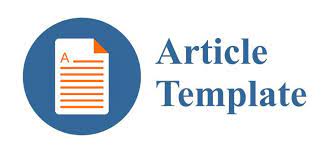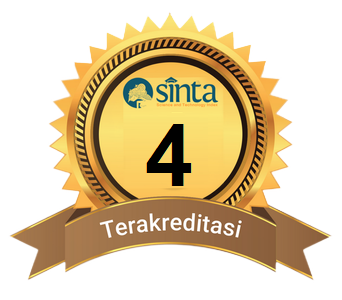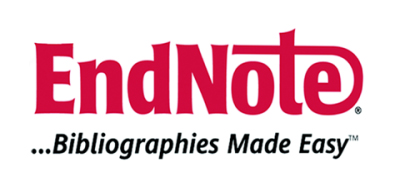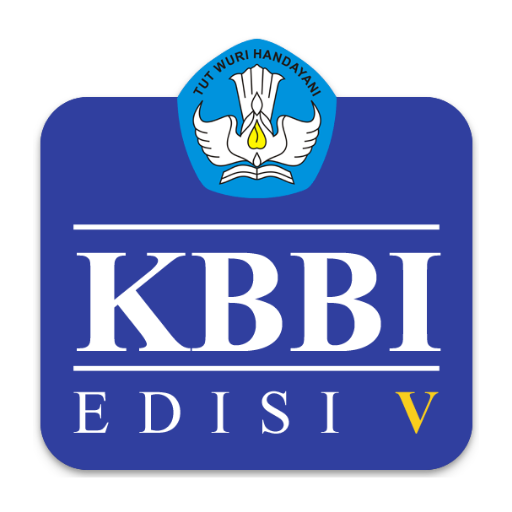PEMENUHAN HAK POLITIK DAN PEMBERDAYAAN DISABILITAS MELALUI PENDIDIKAN KEWARGANEGARAAN BERBASIS SERVICE LEARNING UNTUK CIVIC EQUALITY
DOI:
https://doi.org/10.36706/jbti.v12i1.190Keywords:
Civic Equality, Service Learning, Disabilitas, Hak Politik, PemberdayaanAbstract
Penelitian ini berupaya untuk merampungkan paradigma baru selaku missing link pada upaya pemenuhan hak politik dan pemberdayaan disabilitas melalui PKn berbasis service learning untuk civic equality, karena bersifat integratif. Penelitian ini berbasis literature review, dengan hasil penelitian, yaitu, PKn bersifat holistik untuk mengatasi stereotip ableisme, dan mewujudkan pemenuhan hak politik dan pemberdayaan disabilitas, untuk civic equality mengingat memiliki teori relevan, yaitu citizenship transformative dan civic empowerment untuk mengatasi individual atau medical model of disability. PKn selaku civic education adalah wahana strategis untuk memberi informasi holistik mengenai pemenuhan hak politik dan pemberdayaan disabilitas, lalu PKn selaku citizenship education adalah wahana strategis pemenuhan hak politik dan pemberdayaan disabilitas, yang bersifat sosio-kultural, praktik citizenship education, memuat service learning, agar holistik dan terpadu, lalu mengakomodir siasat kolaborasi pentahelix agar melibatkan lintas sektor, selaku penerapan spirit persatuan nasional, agar representatif dan integratif.
This research seeks to complete a new paradigm as a missing link in efforts to fulfill political rights and empower people with disabilities through service learning-based Civics for civic equality, because it is integrative. This research is based on a literature review, with research results, namely, Civics is holistic to overcome stereotypes of ableism and realizes the fulfillment of political rights and empowerment of people with disabilities, for civic equality considering that it has relevant theories, namely transformative citizenship and civic empowerment to overcome individual or medical models of disability. Civics as civic education is a strategic vehicle for providing holistic information regarding the fulfillment of political rights and empowerment of people with disabilities, then Civics as citizenship education is a strategic vehicle for fulfilling political rights and empowerment of people with disabilities, which is socio-cultural in nature, practices citizenship education, contains service learning, so that it is holistic and integrated, then accommodating pentahelix collaboration strategies to involve cross-sectors, as an implementation of the spirit of national unity, so that it is representative and integrative.
Downloads
References
Andriani, H., & Amsari, F. (2021). Hak pilih kelompok penyandang disabilitas dalam pemilihan umum tahun 2019 di Sumatera Barat. Jurnal Konstitusi, 17(4), 777–798. https://doi.org/10.31078/jk1744
Anthony, S., Mujtahid, I. M., Marta, A., Wicaksono, B., & Thahir, M. (2023). Disability empowerment in the perspective of collaborative governance in Kampar district. International Journal of Social Service and Research (IJSSR), 3(4), 990–997. https://doi.org/10.46799/ijssr.v3i4.344
Badan Pusat Statistik Indonesia. (2020). Pendataan penyandang disabilitas. BPS.
Bailey, M., & Mobley, I. A. (2019). Work in the intersections: a black feminist disability framework. Gender and Society, 33(1), 19–40. https://doi.org/10.1177/0891243218801523
Banks, J. A. (2017). Failed citizenship and transformative civic education. Educational Researcher, 46(7), 366–377. https://doi.org/10.3102/0013189X17726741
Barnes, C. (2000). A working social model? disability, work and disability politics in the 21st century. Critical Social Policy, 20(4), 441–457. https://doi.org/10.1177/026101830002000402
Bauml, M., Quinn, B. P., Blevins, B., Magill, K. R., & LeCompte, K. (2023). “I really want to do something”: how civic education activities promote thinking toward civic purpose among early adolescents. In Journal of Adolescent Research (Vol. 38, Nomor 1). https://doi.org/10.1177/07435584211006785
Ben-Porath, S. (2007). Civic virtue out of necessity:patriotism and democratic education. Theory and Research in Education, 5(1), 41–59. https://doi.org/10.1177/1477878507073608
Bhatt, A. (2000). Building NGO-corporate partnership for social development. Vikalpa, 25(2), 11–18. https://doi.org/10.1177/0256090920000203
Birdwell, J., Scott, R., & Horley, E. (2013). Active citizenship, education and service learning. Education, Citizenship and Social Justice, 8(2), 185–199. https://doi.org/10.1177/1746197913483683
Boland, G., & Guerin, S. (2023). Supporting social inclusion in neighbourhoods of adults with intellectual disabilities: service providers’ practice experiences. Journal of Intellectual Disabilities, 27(2), 291–314. https://doi.org/10.1177/17446295221085479
Bovaird, T. (2004). Public-private partnerships: from contested concepts to prevalent practice. International Review of Administrative Sciences, 70(2), 199–215. https://doi.org/10.1177/0020852304044250
Brennan, D., D’eath, M., Dunne, N., O’Donovan, M. A., McCallion, P., & McCarron, M. (2023). Irish social policy to family carers of adults with an intellectual disability: a critical analysis. Journal of Intellectual Disabilities, 27(4), 1013–1031. https://doi.org/10.1177/17446295221115296
Brzykcy, A., & Boehm, S. (2022). No such thing as a free ride: the impact of disability labels on relationship building at work. Human Relations, 75(4), 734–763. https://doi.org/10.1177/0018726721991609
Bueso, L. (2022). Civic equity for students with disabilities. Teachers College Record, 124(1), 62–86. https://doi.org/10.1177/01614681221086092
Bunbury, S. (2019). Unconscious bias and the medical model: how the social model may hold the key to transformative thinking about disability discrimination. International Journal of Discrimination and the Law, 19(1), 26–47. https://doi.org/10.1177/1358229118820742
Burth, H.-P. (2016). The contribution of service-learning programs to the promotion of civic engagement and political participation: a critical evaluation. Citizenship, Social and Economics Education, 15(1), 58–66. https://doi.org/10.1177/2047173416658504
Caughey, C. (2021). Government human rights focal points: lessons learned from focal points under the convention on the rights of persons with disabilities. Netherlands Quarterly of Human Rights, 39(2), 119–139. https://doi.org/10.1177/09240519211015557
Charitsis, V., & Lehtiniemi, T. (2023). Data ableism: ability expectations and marginalization in automated societies. Television and New Media, 24(1), 3–18. https://doi.org/10.1177/15274764221077660
Chatzitheochari, S., & Butler-Rees, A. (2023). Disability, social class and stigma: an intersectional analysis of disabled young people’s school experiences. Sociology, 57(5), 1156–1174. https://doi.org/10.1177/00380385221133710
Compare, C., & Albanesi, C. (2023). Exploring the effects of semester-long service-learning: a study on psychosocial variables and quality of participation experiences. Journal of Experiential Education, 0(0), 1–21. https://doi.org/10.1177/10538259231221511
Dhanda, A. (2008). Sameness and difference: twin track empowerment for women with disabilities. Indian Journal of Gender Studies, 15(2), 209–232. https://doi.org/10.1177/097152150801500202
Dillabaugh, J. (2019). Book review: liberating service learning and the rest of higher education civic engagement. Journal of Experiential Education, 42(1), 93–94. https://doi.org/10.1177/1053825918810288
Dominelli, L. (1999). Community, citizenship and empowerment. Sociology, 33(2), 441–446. https://doi.org/10.1177/S0038038599000255
Egan-Simon, D. (2022). Active agents of change: a conceptual framework for social justice-orientated citizenship education. Equity in Education & Society, 1(2), 297–310. https://doi.org/10.1177/27526461221089350
Ellis, K., & Goggin, G. (2015). Disability media participation: opportunities, obstacles and politics. Media International Australia, 154(1), 78–88. https://doi.org/10.1177/1329878x1515400111
Evans, E., & Reher, S. (2022). Disability and political representation: analysing the obstacles to elected office in the UK. International Political Science Review, 43(5), 697–712. https://doi.org/10.1177/0192512120947458
Faujianto, S. A., Rohmatiah, A., Iswati, R., & Lukito, M. (2023). Pemberdayaan penyandang disabilitas melalui program ketrampilan handycraft untuk mendorong kemandirian ekonomi di paguyupan disabilitas krida karya mandiri. Jurnal Terapan Abdimas, 8(1), 58–64. https://doi.org/10.25273/jta.v8i1.13894
Flatt-Fultz, E., & Phillips, L. A. (2012). Empowerment training and direct support professionals’ attitudes about individuals with intellectual disabilities. Journal of Intellectual Disabilities, 16(2), 119–125. https://doi.org/10.1177/1744629512443652
Furlong, D. E., & Lester, J. N. (2022). Toward a practice of qualitative methodological literature reviewing. Qualitative Inquiry, 29(6), 669–677. https://doi.org/10.1177/10778004221131028
Garwood, J. D., Ciullo, S., Wissinger, D. R., & McKenna, J. W. (2021). Civics education for students with learning disabilities and emotional and behavioral disorders. Intervention in School and Clinic, 56(4), 250–254. https://doi.org/10.1177/1053451220944143
Goulden, A., Kattari, S. K., Slayter, E. M., & Norris, S. E. (2023). ‘Disability is an art. it’s an ingenious way to live.’: integrating disability justice principles and critical feminisms in social work to promote inclusion and anti-ableism in professional praxis. Affilia, 38(4), 732–741. https://doi.org/10.1177/08861099231188733
Hagner, D., & Marrone, J. (1995). Empowerment issues in services to individuals with disabilities. Journal of Disability Policy Studies, 6(2), 17–36. https://doi.org/10.1177/104420739500600202
Halalia, M. R. (2017). Pemenuhan Hak politik penyandang disabilitas sesuai dengan undang-undang nomor 8 tahun 2016 tentang penyandang disabilitas oleh komisi pemilihan umum (KPU) kota Yogyakarta. Supremasi Hukum: Jurnal Kajian Ilmu Hukum, 6(2), 1–24. https://doi.org/10.14421/sh.v6i2.2016
Harpur, P., & Szucs, B. (2023). Using the new disability human rights paradigm to create higher education leadership opportunities. International Journal of Discrimination and the Law, 23(1–2), 144–162. https://doi.org/10.1177/13582291231169668
Harris, S. P., Owen, R., & De Ruiter, C. (2012). Civic engagement and people with disabilities: the role of advocacy and technology. Journal of Community Engagement and Scholarship, 5(1), 70–83. https://doi.org/10.54656/awpe1856
Hartley, M. T., Saia, T., Mapes, A. C., Taylor, A., & Ficchi, G. (2024). Ableism and able privilege: integrating social justice concepts in rehabilitation education. Rehabilitation Counseling Bulletin, 0(0). https://doi.org/10.1177/00343552241236887
Hébert, A., & Hauf, P. (2015). Student learning through service learning: effects on academic development, civic responsibility, interpersonal skills and practical skills. Active Learning in Higher Education, 16(1), 37–49. https://doi.org/10.1177/1469787415573357
Heggart, K., Flowers, R., Burridge, N., & Arvanitakis, J. (2018). Refreshing critical pedagogy and citizenship education through the lens of justice and complexity pedagogy. Global Studies of Childhood, 8(4), 355–367. https://doi.org/10.1177/2043610618814846
Higgins, J. W. (1999). Citizenship and empowerment: a remedy for citizen participation in health reform. Community Development Journal, 34(4), 287–307. https://doi.org/https://doi.org/10.1093/cdj/34.4.287
Jammaers, E. (2023). On ableism and anthropocentrism: a canine perspective on the workplace inclusion of disabled people. Human Relations, 76(2), 233–257. https://doi.org/10.1177/00187267211057549
Janz, H. L. (2019). Ableism: the undiagnosed malady afflicting medicine. Cmaj: Canadian Medical Association Journal, 191(17), E478–E479. https://doi.org/10.1503/cmaj.180903
Jerome, L. (2012). Service learning and active citizenship education in England. Education, Citizenship and Social Justice, 7(1), 59–70. https://doi.org/10.1177/1746197911432594
Joseph, K. A. (2007). Implementing the social model of disability: theory and research. International Sociology, 22(2), 247–250. https://doi.org/10.1177/026858090702200231
Kaundinya, T., & Schroth, S. (2022). Dismantle ableism, accept disability: making the case for anti-ableism in medical education. Journal of Medical Education and Curricular Development, 9. https://doi.org/10.1177/23821205221076660
Kementerian Sosial RI. (2021). Pedoman operasional asistensi rehabilitasi sosial penyandang disabilitas. In Direktorat Jenderal Rehabilitasi Sosial.
Komara, E. (2017). Curriculum and civic education teaching in Indonesia. Educare: International Journal for Educational Studies, 10(1), 23–32. www.mindamas-journals.com/index.php/educare
Kuang, X., & Kennedy, K. J. (2021). Alienated and disaffected students: exploring the civic capacity of ‘outsiders’ in latin America. Education, Citizenship and Social Justice, 16(1), 49–61. https://doi.org/10.1177/1746197919886877
Kunnath, S. K., George, V. M., Kumar, K. G. S., & Babu, A. (2023). Disability empowerment in kerala: a status analysis and vision for the future. Journal of Developing Societies, 39(1), 104–127. https://doi.org/10.1177/0169796X221150482
Kwon, C., & Archer, M. (2022). Conceptualizing the marginalization experiences of people with disabilities in organizations using an ableism lens. Human Resource Development Review, 21(3), 324–351. https://doi.org/10.1177/15344843221106561
LeCompte, K., Blevins, B., & Riggers-Piehl, T. (2020). Developing civic competence through action civics: a longitudinal look at the data. Journal of Social Studies Research, 44(1), 127–137. https://doi.org/10.1016/j.jssr.2019.03.002
Lynch, K. (2006). Book review: changing citizenship: democracy and inclusion in education. Education, Citizenship and Social Justice, 1(3), 283–285. https://doi.org/10.1177/1746197906068125
Mann, J. A., Dymond, S. K., Bonati, M. L., & Neeper, L. S. (2015). Restrictive citizenship: civic-oriented service-learning opportunities for all students. Journal of Experiential Education, 38(1), 56–72. https://doi.org/10.1177/1053825913514731
Miles, M. B., Huberman, A. M., & Saldana, J. (2014). Qualitative data analysis a methods sourcebook (Edition 3). SAGE Publications.
Nanggala, A. (2020). Citizenship education as a democracy learning for students in higher education. Ijeca (International Journal of Education and Curriculum Application), 3(1), 69–79. https://doi.org/10.31764/ijeca.v3i1.2067
Nanggala, A. (2023). Model pembudayaan pancasila berbasis kolaborasi pentahelix untuk membangun generasi muda indonesia yang pancasilais. Pancasila: Jurnal Keindonesiaan, 3(2), 160–178. https://doi.org/10.52738/pjk.v3i2.166
Nanggala, A., & Suryadi, K. (2021). Analisis konsep service learning dalam perspektif pendidikan kewarganegaraan. Pkn Progresif, 16(1), 1–14. https://doi.org/10.20961/pknp.v16i1.56832
Nanggala, A., & Suryadi, K. (2023). Konstruksi civic campaign untuk kesetaraan difabel berbasis pembelajaran pendidikan kewarganegaraan di perguruan tinggi. Jurnal Paris Langkis, 4(1), 67–77. https://doi.org/10.37304/paris.v4i1.12579
Nanggala, A., & Suryadi, K. (2024). Konstruksi pembelajaran pendidikan kewarganegaraan di perguruan tinggi berbasis inclusive citizenship untuk memenuhi hak politik dan memberdayakan difabel. Didaktika: Jurnal Kependidikan, 13(1), 745–754. https://doi.org/10.58230/27454312.402
Nassaji, H. (2020). Good qualitative research. Language Teaching Research, 24(4), 427–431. https://doi.org/10.1177/1362168820941288
Pemerintah Indonesia. (2012). Undang-undang republik Indonesia nomor 12 tahun 2012 tentang pendidikan tinggi. Tambahan lembaran negara republik Indonesia nomor 5336. In Sekretariat Negara (Vol. 66).
Putra, R. S., Marpaung, Y. N. M., Pradhana, Y., & Rimbananto, M. R. (2021). Pesan Kesetaraan penyandang disabilitas melalui interaksi simbolik media sosial. Interaksi: Jurnal Ilmu Komunikasi, 10(1), 1–11. https://doi.org/10.14710/interaksi.10.1.1-11
Ramadhan, M. N. (2021). Memaknai urgensi perlindungan dan pemenuhan hak politik penyandang disabilitas: menyongsong pemilihan umum serentak tahun 2024. Jurnal Bawaslu Provinsi Kepulauan Riau, 3(2), 22–37. http://dx.doi.org/10.55108/jbk.v3i2.255
Richard, S., & Hennekam, S. (2021). When can a disability quota system empower disabled individuals in the workplace? the case of France. Work, Employment and Society, 35(5), 837–855. https://doi.org/10.1177/0950017020946672
Rivera, L. A., & Tilcsik, A. T. (2023). Not in my schoolyard : disability discrimination in educational access. American Sociological Review, 88(2), 284–321. https://doi.org/10.1177/00031224221150433
Rossetti, Z., Burke, M. M., Rios, K., Rivera, J. I., Schraml-Block, K., Hughes, O., Lee, J. D., & Aleman-Tovar, J. (2020). Parent leadership and civic engagement: suggestions for the next individuals with disabilities education act reauthorization. Journal of Disability Policy Studies, 31(2), 99–111. https://doi.org/10.1177/1044207319901260
Schulze, L. (2020). Book review: disability rights advocacy online: voice, empowerment and global connectivity. New Media & Society, 22(7), 1327–1328. https://doi.org/10.1177/1461444820931022
Schur, L. A. (1998). Disability and the psychology of political participation. Journal of Disability Policy Studies, 9(2), 3–31. https://doi.org/10.1177/104420739800900202
Scott, L. A., & Shogren, K. A. (2023). Advancing anti-racism and anti-ableism in transition: equity-oriented indicators for research. Career Development and Transition for Exceptional Individuals, 46(4), 237–248. https://doi.org/10.1177/21651434231189665
Setyaningsih, R., & Gutama, T. A. (2016). Pengembangan kemandirian bagi kaum difabel (studi kasus pada peran paguyuban sehati dalam upaya pengembangan kemandirian bagi kaum difabel di kabupaten Sukoharjo). Dilema, 31(1), 42–52. https://jurnal.uns.ac.id/dilema/article/view/8356
Shields, T. G., Schriner, K. F., & Schriner, K. (1998). Influences on the political participation of people with disabilities: the role of individual and elite factors in 1984 and 1986. Journal of Disability Policy Studies, 9(2), 77–91. https://doi.org/10.1177/104420739800900205
Sihombing, S. R., Hodriani, H., & Alhudawi, U. (2023). Memperkuat civic engagement pada generasi muda. Pancasila and Civic Education Journal, 2(2), 1–8. https://doi.org/10.30596/jcositte.v1i1.xxxx
Surwanti, A. (2014). Model pemberdayaan ekonomi penyandang disabilitas di Indonesia. Jurnal Manajemen Bisnis, 5(1), 237–245. https://journal.umy.ac.id/index.php/mb/article/view/614
Trevisan, F. (2020). “Do you want to be a well-informed citizen, or do you want to be sane?” social media, disability, mental health, and political marginality. Social Media and Society, 6(1), 1–11. https://doi.org/10.1177/2056305120913909
Trimbur, L. (2017). Doing qualitative research: the craft of naturalistic inquiry. contemporary sociology : a journal of reviews, 46(5), 539–540. https://doi.org/10.1177/0094306117725085f
Voulgarides, C. K. (2021). Politics of empowerment: disability rights and the cycle of american policy reform. Contemporary Sociology, 50(1), 82–83. https://doi.org/10.1177/0094306120976390ee
Warren, K. (1998). Educating students for social justice in service learning. Journal of Experiential Education, 21(3), 134–139. https://doi.org/10.1177/105382599802100305
White, G., Dong, D., Campbell, D. E., & Lee, C. D. (2023). Civic education in a time of democratic crisis. Annals of the American Academy of Political and Social Science, 705(1), 7–15. https://doi.org/10.1177/00027162231190539
Winataputra, U. S. (2016). Posisi akademik pendidikan kewarganegaraan (PKn) dan Muatan/mata pelajaran pendidikan pancasila dan kewarganegaraan (PPKn) dalam konteks sistem pendidikan nasional. Jurnal Moral Kemasyarakatan, 1(1), 15–36. https://doi.org/10.21067/jmk.v1i1.1184
Zahedi, S., Jaffer, R., Bryant, C. L., & Bada, K. (2023). Service-learning effects on student civic engagement and community - a case study from India. Education, Citizenship and Social Justice, 18(1), 3–21. https://doi.org/10.1177/17461979211041334
Downloads
Published
How to Cite
Issue
Section
License
Copyright (c) 2025 Agil Nanggala

This work is licensed under a Creative Commons Attribution-NonCommercial-ShareAlike 4.0 International License.




__.png)
















